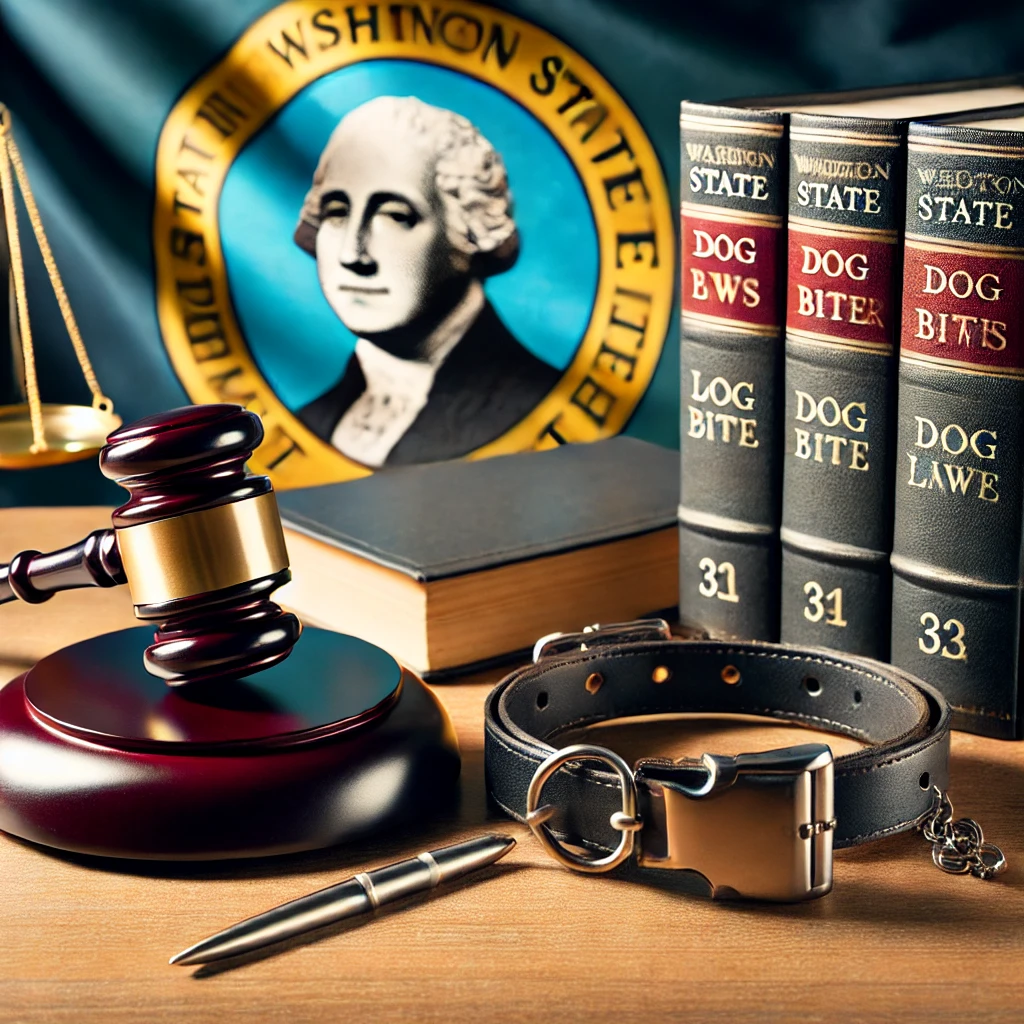Dogs are often called “man’s best friend,” but sometimes even the friendliest dog can bite unexpectedly. If you or someone you know has been bitten by a dog in Washington State, understanding the legal framework can help you navigate the situation effectively. Here’s a comprehensive guide to Washington State’s dog bite laws.
Strict Liability Law
Washington State operates under a “strict liability” rule for dog bites. This means that a dog owner is responsible for their dog’s actions regardless of whether the dog has shown any previous signs of aggression. According to RCW 16.08.040, a dog owner is liable if their dog bites someone who is:
- Lawfully on private property (such as a guest or delivery person).
- In a public place.
The law applies even if the dog has never bitten anyone before or has no history of aggressive behavior.
Who Can File a Claim?
Anyone who has been bitten by a dog while legally on private property or in a public space can file a claim. However, there are exceptions. For instance, someone trespassing on private property or provoking the dog (e.g., teasing, hitting) may not have a valid claim.
Damages You Can Recover
Victims of dog bites in Washington State can seek compensation for various damages, including:
- Medical Expenses: Emergency care costs, surgeries, medications, and follow-up treatments.
- Lost Wages: If the injury prevents you from working.
- Pain and Suffering: Physical and emotional trauma caused by the bite.
- Property Damage: If the dog bite caused damage to your personal belongings, such as clothing.
Defenses Dog Owners Might Use
Dog owners may try to avoid liability by arguing:
- Trespassing: The victim was illegally on their property.
- Provocation: The victim provoked the dog into biting.
- Assumption of Risk: The victim knowingly put themselves in a risky situation.
Time Limit to File a Claim
Washington State Dog Bite Laws, the statute of limitations for filing a dog bite lawsuit is typically three years from the date of the injury. Failing to file within this timeframe may result in losing your right to seek compensation.
Dangerous Dog Laws
Washington has additional laws for dogs classified as “dangerous” or “potentially dangerous.”
- A dangerous dog has caused severe injury or death to a person or another animal.
- A potentially dangerous dog has shown aggressive behavior without causing severe harm.
Owners of these dogs must follow strict regulations, such as keeping the dog in secure enclosures, obtaining liability insurance, and properly warning others about the dog.
Steps to Take After a Dog Bite
If a dog bites you or a loved one, follow these steps:
- Seek Immediate Medical Attention: Even minor bites can lead to infections.
- Identify the Dog and Owner: Get the dog owner’s contact information and verify the dog’s vaccination status.
- Report the Incident: File a report with local animal control authorities.
- Document Everything: Take photos of the injuries, gather witness statements, and keep medical records.
- Consult an Attorney: An experienced personal injury attorney can help you understand your rights and pursue a claim.
Preventing Dog Bites
To reduce the risk of dog bites, follow these tips:
- Avoid approaching unfamiliar dogs.
- Do not disturb a dog eating, sleeping, or caring for puppies.
- Teach children how to interact safely with dogs.
- Keep your dog properly trained, vaccinated, and socialized.
Conclusion
Dog bites can be traumatic, but Washington State’s dog bite laws are designed to protect victims and ensure accountability. Whether you’re a dog owner or a victim, understanding these laws can help you make informed decisions. If you’re dealing with a dog bite situation, don’t hesitate to seek legal advice to protect your rights and get the compensation you deserve.

Leave a Reply